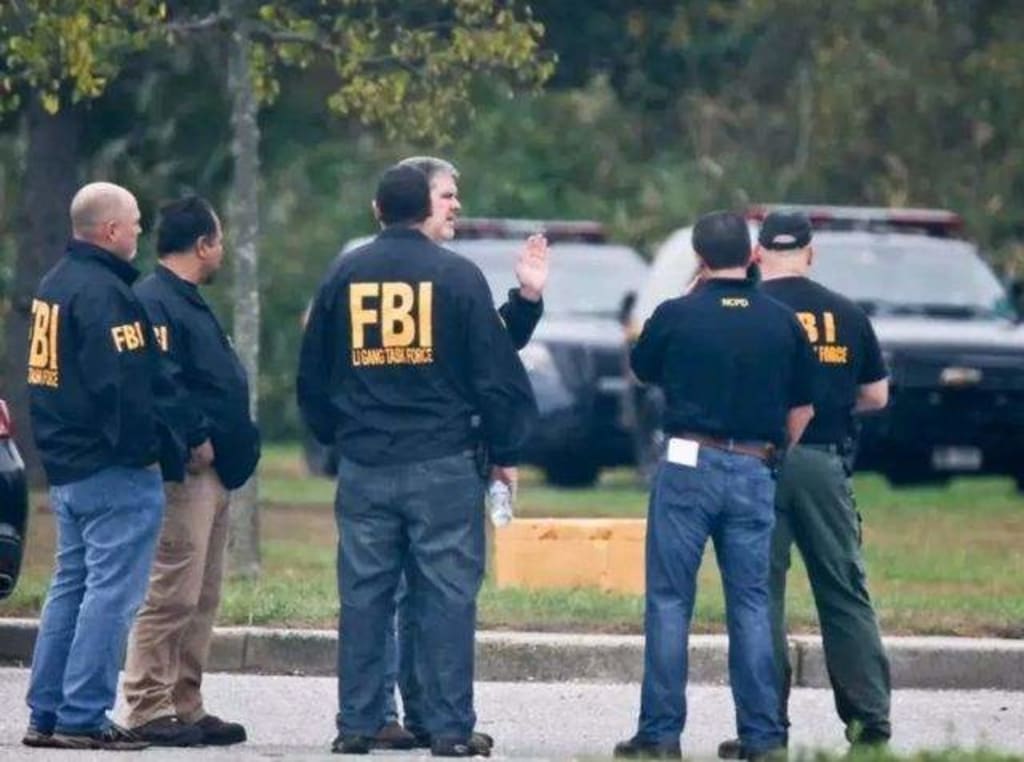
The FBI's suspicion of the loyalty of its employees can be said to be institutional. This suspicion was fueled by an incident in 2001. That year, veteran agent Robert Hansen was arrested, and he made diamonds and $1.4 million in cash by selling secrets to Russia. For 22 years, the FBI went unnoticed.
To ensure that such incidents do not happen again, any agent spouse who is not a U.S. citizen is subject to investigation. I have a green card and have undergone extensive background checks, fingerprints, medical exams, and my retinas have been photographed because of the new smart ID.
But not long ago, a woman called me. I'll call her Brenda for now. Brenda said the FBI needed an urgent interview with me. She warned that some issues involve personal privacy and need to get to the bottom of it. The interview lasts about three hours.
Are you a spy?
We made an appointment to meet at a neutral venue, a coffee shop in downtown Washington.
Brenda, with a clipboard in her hand, was instantly recognizable. However, she looked more like a market survey than an FBI investigator. Brenda, who was a probation officer before retiring, did not put on an aggressive stance, but instead appeared apologetic. She said she was part of the federal government's large contingent of contract workers, a job she loved very much.
The first question is simple. When and where did you first come to the US? Where did you meet your husband? Have you served in the British Army? Who is your current employer?
Brenda checked my passport, copied the details of the entry and exit stamps, and asked why I was in Aruba, the Cayman Islands, Costa Rica. Then she asked me if anyone had ever tried to develop me to gather intelligence about the US government? Did someone order me to marry a US government employee for the same reason?
To put it bluntly, are you a spy?
I have been married for seven and a half years. After I answered "no, no", I couldn't help but think to myself, if I really am a spy, I must be a very good spy if I haven't shown my feet for so long. Your question now is unlikely to reveal me.
Are you loyal to America?
The next section, titled "The Problem of Loyalty."
Do you have plans to become a U.S. citizen? My answer is, haven't decided yet, maybe. "The answer is neither yes nor no," Brenda said. I said, "Yes, just maybe."
"Maybe [apply]?" she asked hopefully.
And I said, "Probably not."
Both of us fell silent. Clearly, Brenda was thinking about which box to tick.
Later, she asked a few more questions about my property in the UK, my bank account number. Then she asked: "Have you ever done anything that could be used by someone to blackmail you?"
All the flippant, indiscreet things I've done over the past few decades flashed through my mind like a slideshow. Under what circumstances does a momentary inadvertent madness become a tool for extortion by others? And by whose standards?
I looked at Brenda suspiciously and replied, "Never."
The next few questions are about espionage, working for foreign (non-US) intelligence, and whether I've ever been detained.
Who do you know?
Then, we ran into trouble. She asked me to provide the names and addresses of real-world friends and relatives who still live in the UK and are in regular contact with me. For some reason, I find this question the most offensive.
I asked her, why does the FBI have to know about my 87-year-old uncle David, who lives in Wales? What are you going to do with this information? How could my uncle affect my husband's security clearance?
Brenda couldn't answer my question, but she continued to ask, how did my uncle and I keep in touch? Email? I was very unhappy. I said, my uncle didn't have a computer at all, and he didn't have a credit card. I was almost certain that he didn't have a passport either. It suddenly dawned on me that there might be only one person left in the UK who couldn't be tracked electronically at all. That alone might be enough to give the FBI a red light.
The following talks about real-world friends in work relationships. Brenda asked for a few examples. Clearly, she was eager to fill in the blanks on the spreadsheet.
At this point, I'm going to stop writing. Just say this, if you know me, the FBI probably knows you too. But don't expect them to come or call you anytime soon. It took seven and a half years for the FBI to remember to censor me. God knows how long it will take to find my uncle.
About the Creator
Emily
Enjoy solitude and like to write quietly alone.






Comments
There are no comments for this story
Be the first to respond and start the conversation.